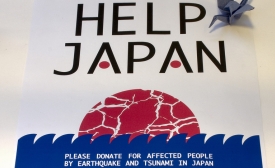Asia Pacific
SHANGHAI --- Zhao Qizeng, China’s leading proponent of public diplomacy, wrote, “Culture is the soul and life of a nation.” That concept is the driving force behind much of China’s exercise of soft power, and other countries that deal with this superpower need to understand the value the Chinese place on their language, traditions, and other cultural elements of their national life.
BEIJING --- During the 20 years since the demise of the Soviet Union, and after a unipolar moment for the United States, China has emerged as the newest superpower. All its predecessors at this exalted level, going back even before Rome, have established their positions by amassing formidable military strength. But China is going about matters differently.
If we do not highlight it often enough, cultural diplomacy promotes the creation of transnational social spaces of engagement and interaction. And, even as they are often identified with particular cultures or countries, cultural diplomatic interventions are also unavoidably cosmopolitan in nature, insofar as they move between, confront, and conjoin multiple social worlds. In this way and even when carried away by the worst excesses of national chauvinisms, cultural diplomacy is inherently a transnationalist project of sorts.

While Japan struggled to recover from the 3/11 earthquake and tsunami, Japanese PD also struggled to recover from the damage.
TAIPEI --- While the latest aircraft carrier movements and military maneuvers here are chronicled closely in U.S. media, significant public diplomacy initiatives go largely unreported. This past week provided a prime example:
Beijing Mayor Guo Jinlong’s week-long visit to Taipei has been front-page news in this region, in newspapers from Korea to Singapore. For his first-ever visit, the mayor led a 500-person delegation – yes, five hundred people – including party officials, business leaders and Chinese celebrities.
Assessing China's "charm offensive."
CPD Blog Manager: Naweed Lemar
APDS Blogger: Di Wu







